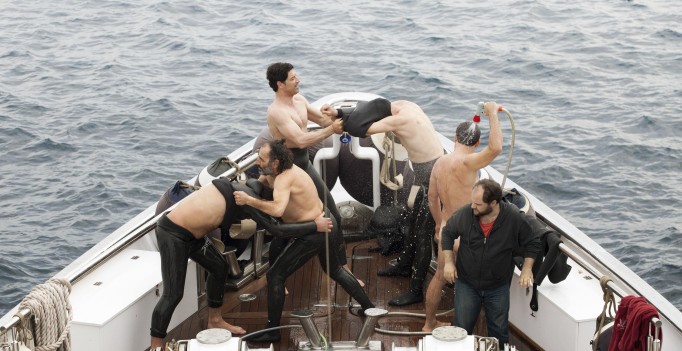Based on my moviegoing experience, most romantic comedies, melodramas and other stereotypically feminine genre films are directed by men. Based on this alone, Chevalier is an important film: a study of masculinity through the gaze of a woman filmmaker.
In her follow-up to the decidedly feminine Attenberg, Athina Rachel Tsangari once again dissects the inner workings of her subjects’ minds with the dry humour and tone for which modern Greek cinema has come to be known for (it is not a coincidence that Tsangari produced several of Yorgos Lanthimos’ films).
Chevalier places the viewer on vacation with a group of men – “manly” men – on a fishing trip who decide to play a game where they critique each other – everything about each other. They test their skills, abilities, measurements and whatever else they can use in order to destroy each other and win the right to wear the prize, the chevalier ring. It is an absurd concept and it works because everyone involved recognizes the absurdity of it all, leaving room open for this to lead to absolute cruelty. The actors are pathetic and their values laughable, and that will drag in about half of the audience. This is an important indication: this film is not for everyone. It contains a lot of stylistic choices reminiscent of slow cinema and it almost never goes for an easy laugh. Plus, quite a bit of screen time is devoted to the beautiful surroundings of the Aegean Sea and the surrounding islands.
This could have been a perfect film if it was not for the sudden anticlimactic ending. This new wave of Greek cinema does seem to have a bit of trouble with endings, but Chevalier’s conclusion serves no purpose, almost undermining the entirety of the film before it.
However, the ending isn’t crippling enough to ruin Athina Rachel Tsangari’s enjoyably strange film.
**********
Do You Tweet? Follow These Tweeple:
Shahbaz Khayambashi: @Shakhayam




Be the first to comment